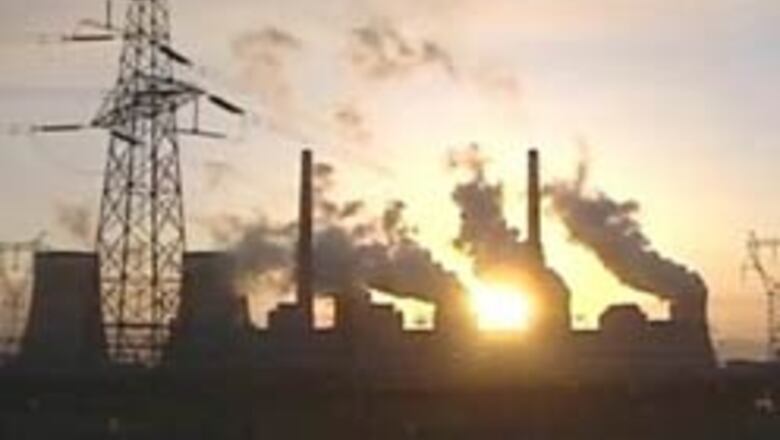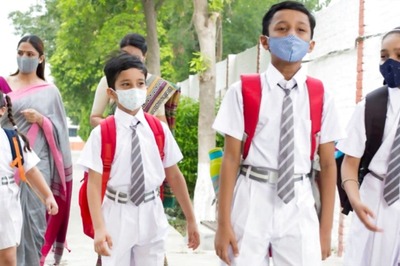
views
London/New York: Recession has set the stage for the sharpest fall in world greenhouse gas emissions in 40 years, an estimate on Monday showed, as world leaders gathered in New York to seek a way forward on a new climate change treaty.
The International Energy Agency said global output of carbon dioxide, the most common greenhouse gas produced by burning fossil fuels, would fall by about 2.6 percent this year amid a tumble in industrial activity.
It expressed hope that the world would seize on the decline to shift to lower-carbon growth despite worries that governments might take it as an excuse for inaction.
"This fall in emissions and in investment in fossil fuels will only have meaning with agreement in Copenhagen which provides a low-carbon signal to investors," IEA chief economist Fatih Birol told Reuters.
World leaders are to meet at UN headquarters on Tuesday for a one-day climate summit to try to unlock 190-nation negotiations on a new deal to combat global warming due to be hammered out in Copenhagen in December.
China will be key to those talks.
Chinese President Hu Jintao is expected to unveil on Tuesday new measures his country intends to take to tackle global warming, although experts say this may focus on goals for curbing "carbon intensity"--the amount of emissions per unit of economic output--rather than absolute cuts in emissions.
UN climate chief Yvo de Boer said the Chinese leader's speech would thrust his country into a new leadership role.
"This suite of policies will take China to be a world leader on addressing climate change, and it will be quite ironic to hear that tomorrow expressed in a country (the United States) that is firmly convinced that China is doing nothing to address climate change," he told reporters.
Negotiations among 190 nations are stalled over how to share the burden of curbs on gas emissions through 2020 between rich and poor nations and how to raise perhaps $100 billion a year to help the poor combat warming and adapt to changes such as rising seas or desertification.
Eyes on China, United States
Some experts expressed doubts that recession and falling industrial output could be a springboard to greener growth.
"When politicians talk about the financial crisis everything is about returning to growth, which means higher emissions," said Paal Prestrud, director of the Center for International Climate and Environmental Research in Oslo.
"We have to reduce emissions in a planned way to avoid social problems, not through recession," he said.
Aside from China, eyes at the summit will be on the United States. Environmentalists hope the pair, the top emitters which account for more than 40 percent of the world total, will find common ground to help spur the Copenhagen talks.
President Barack Obama will have to persuade the rest of the world that Washington is serious about cutting its emissions when it looks unlikely the U.S. Senate will pass climate legislation in time for Copenhagen.
The UN talks are "dangerously close to deadlock", European Commission President Jose Manuel Barroso said in New York, challenging developing nations to do more in order to secure financial support from industrialized nations.
"This may not be a simple negotiating stand-off that we can fix next year," according to notes from his speech. "It risks being an acrimonious collapse, delaying action against climate change perhaps for years."
British Prime Minister Gordon Brown opened the possibility of turning the Dec. 7-18 Copenhagen talks -- due to be a meeting of environment ministers -- into a summit of world leaders.
"If it is necessary to clinch the deal, I will personally go to Copenhagen to achieve it -- and I will be urging my fellow leaders to do so too," Brown wrote in an article in Newsweek magazine.
On September 24-25, leaders of the G20 will meet in Pittsburgh but Washington said it would not include a major discussion of how developed nations should provide financial support to developing nations to cope with climate change.
















Comments
0 comment